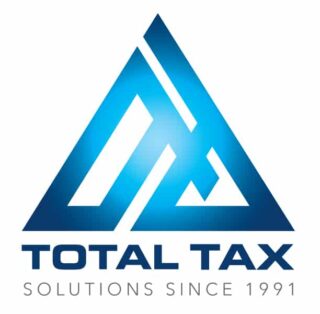Tips for How Small Businesses Can Qualify for the Best Tax Settlement and What to Avoid
Tax debt can be a significant burden for small business owners. When facing mounting tax liabilities, a well-structured tax settlement can provide much-needed relief. However, qualifying for the best possible settlement requires strategic planning and adherence to key financial principles. In this guide, we’ll cover essential do’s and don’ts to help small businesses navigate tax settlements effectively.
Do’s: Steps to Improve Tax Settlement Eligibility
1. File All Past-Due Tax Returns
Before the IRS or state tax authorities consider a tax settlement request, businesses must have all unfiled tax returns submitted. The IRS and state agencies require tax compliance, meaning that all past-due returns, including transcript tax returns and state tax returns, must be up to date. Without this step, any settlement request is likely to be denied.
2. Stay Current with Estimated Tax Payments
If a business is still operating, it must make all required estimated tax payments for the current year. This is a crucial requirement for maintaining tax compliance and demonstrating good faith to the IRS. Failure to make estimated payments can jeopardize any pending tax settlement offer.
3. Consider an IRS Offer in Compromise (OIC), but Explore Other Options Too
An IRS Offer in Compromise allows qualified businesses to settle their tax debt for less than the total amount owed. However, the IRS evaluates several factors, including income, expenses, asset equity, and ability to pay. Businesses with limited home equity, lower disposable income, and minimal dissipated assets are more likely to qualify for an OIC.
That said, an OIC is not the only resolution option. Small businesses should also consider alternatives such as installment agreements and partial pay installment agreements. These arrangements allow businesses to pay their tax debt in manageable monthly payments over time. By evaluating all available options, businesses can choose the most feasible and beneficial solution for their financial situation.
4. Maintain Tax Compliance for Five Years
Even after a settlement is approved, the IRS requires businesses to remain tax compliant for the next five years. This means filing all future tax returns on time and making full and timely tax payments. Any lapse in compliance can void the settlement and reinstate the original tax liability.
5. Request a Copy of IRS Transcripts
Before negotiating a tax settlement, businesses should obtain their IRS transcripts to review past filings, payments, and assessments. This information helps tax professionals strategize the best settlement approach and ensures accuracy when submitting requests.
Don’ts: Mistakes That Can Ruin a Tax Settlement
1. Don’t Ignore Unfiled Tax Returns
Many business owners mistakenly assume that the IRS or state tax authorities will overlook unfiled returns when applying for a settlement. However, missing returns disqualify businesses from settlement programs. Prioritize filing all returns before attempting to negotiate.
2. Don’t Hide Assets or Income
The IRS conducts a thorough review of financial records when assessing settlement eligibility. Attempting to conceal home equity, income, or other assets can result in severe penalties, including criminal charges. Transparency is critical to securing a fair settlement.
3. Don’t Use Dissipated Assets Improperly
Dissipated assets refer to funds or property that were sold, transferred, or used for non-essential purposes before seeking a settlement. If the IRS determines that a business had significant assets that were spent irresponsibly, those amounts may be added back into the debt calculation, reducing the chances of approval.
4. Don’t Accumulate New Tax Debt
One of the biggest mistakes a business can make while applying for a settlement is accruing additional tax debt. The IRS expects businesses to stay current on their tax obligations, and new liabilities can lead to automatic rejection of settlement requests.
5. Don’t Expect Quick Results
Tax settlements, particularly an IRS Offer in Compromise, take time to process. The IRS reviews financial details meticulously, and applications can take months before a decision is reached. Businesses should remain patient and prepared for additional documentation requests.
Final Thoughts
Navigating tax settlements requires careful planning, compliance, and transparency. By following these do’s and avoiding common pitfalls, small businesses can increase their chances of securing favorable tax relief. While the process can be complex, working with experienced tax professionals, such as those at Total Tax, Inc., can help business owners successfully resolve their tax debt and regain financial stability.



